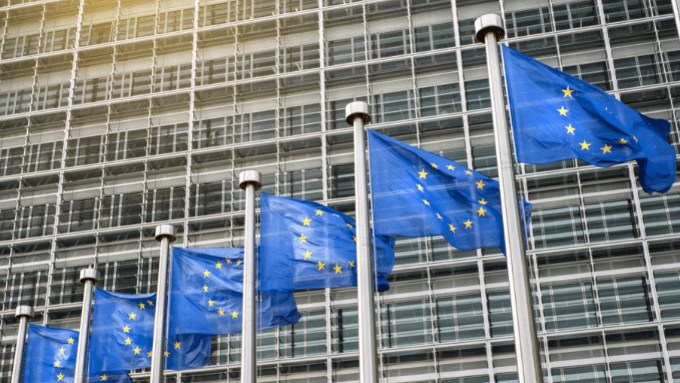Can Undertakings Bring Proceedings Against Competitors Before Civil Courts for Breach of the GDPR?
Introduction
Chapter 8 of the General Data Protection Regulation (“GDPR”) sets out the legal remedies available to data subjects in the event of a breach of their rights under the GDPR. Accordingly, each data subject has a right to lodge a complaint with the supervisory authority of the Member State in which they reside, work, or where the infringement is alleged to have occurred. Furthermore, without prejudice to any available administrative or non-judicial remedies, data subjects also have the right to an effective judicial remedy in the event that their personal data is processed in violation of the GDPR. Accordingly, data subjects may bring proceedings against the controller or processor before the courts of the Member State in which they have an establishment or in which the data subject has his or her habitual residence. On the other hand, the GDPR does not explicitly regulate whether an undertaking may seek a judicial remedy by claiming that another competing undertaking has breached the GDPR.
The Court of Justice of the European Union (“CJEU”), in its decision dated 04.10.2024 and numbered C-21/23[1] (“Lindenapotheke Judgment”), examined this issue in light of the questions referred by the German Federal Court of Justice (“Referring Court”). In this context, the CJEU considered whether Chapter 8 of the GDPR should be interpreted to the exclusion of national legislation that grants competitors of alleged infringers of personal data protection regulations the right to bring proceedings in civil courts on the grounds that such infringements constitute unfair commercial practices.
This article aims to outline the legal remedies available to undertakings to challenge the conduct of their competitors on the basis that such conduct is in breach of the GDPR, in light of the Lindenapotheke Judgment.
The Subject Matter of the Case and Questions Referred to the CJEU
ND is an undertaking operating a pharmacy under the trade name “Lindenapotheke” and has been selling pharmacy-only medicinal products through the Amazon Marketplace platform since 2017. As part of the online ordering process of these medicinal products, ND’s customers must provide ND with their names, delivery addresses, and certain personal data required for the personalization of the products.
DR, who operates another pharmacy, brought an action alleging that the sale by ND of pharmacy-only medicinal products through Amazon Marketplace constituted an unfair commercial practice on the grounds that it failed to comply with the legal requirements for obtaining the customer’s consent required by the legislation on the protection of personal data.
On 28.03.2018, the Regional Court of Dessau-Roßlau upheld the action. ND appealed against this decision to the Higher Regional Court of Naumburg, which rejected the appeal in a decision dated 07.11.2019. The appeal court held that the processing of data concerning health without the explicit consent of the customers is prohibited under Article 9 of the GDPR. Additionally, the court stated that the relevant GDPR regulation is in the nature of legal provisions to regulate market conduct within the meaning of the German Unfair Competition Act. Finally, the court stated that, under the German Unfair Competition Act, DR, as a competitor, is entitled to bring an action in the civil courts alleging that ND has breached these regulations.
ND filed an objection against the said decision before the Referring Court. The Referring Court posed two questions to the CJEU concerning the dispute. For the purposes of this article, only the first question of the Referring Court is addressed.
In its first question, the Referring Court asked whether Chapter 8 of the GDPR allows national law to grant competitors of an undertaking the right to bring proceedings before civil courts on the grounds that the undertaking has infringed the provisions of the GDPR, based on national regulations on unfair commercial practices.
The Referring Court noted that Chapter 8 of the GDPR does not mention, but also does not expressly exclude, the possibility that competing undertakings may bring proceedings under unfair commercial practices for infringements of data protection legislation. Likewise, the phrase “without prejudice to other …” used in Articles 77, 78, and 79 of the GDPR may indicate that judicial remedies are not limited to those foreseen under these provisions. On the other hand, the Referring Court expressed its concern that such an understanding may contravene the GDPR’s objectives of harmonization of national legislation and, in particular, the uniform application of monitoring practices across the Member States of the European Union.
However, in the Referring Court’s view, the right of competitors to bring an action for infringement of the GDPR may also be considered as an additional means of monitoring the application of the GDPR, in line with the principle of effectiveness (effet utile), which aims to ensure the maximum possible protection of personal data in accordance with Article 10 of the GDPR.
Considerations of the CJEU
As mentioned above, Chapter 8 of the GDPR provides for legal remedies to protect the rights of data subjects. As a rule, these remedies can be invoked either directly by the data subjects pursuant to Articles 77-79 of the GDPR or by a not-for-profit body, organization, or association, subject to certain conditions pursuant to Article 80. In the present case, DR, which is not a data subject within the meaning of Article 4 of the GDPR and not an authorized body or entity within the meaning of Article 80, brought an action before a civil court on the grounds that its competitor ND had engaged in unfair commercial practices by breaching the GDPR.
In its assessment of the case, the CJEU first stated that when interpreting a provision of the GDPR, not only the wording but also the context of the provision and the purpose of the GDPR must be considered. Moreover, it emphasized that the wording of the provisions of Chapter 8 of the GDPR does not expressly exclude the possibility for a competitor of an undertaking to bring proceedings before a civil court on the grounds that that undertaking has engaged in unfair commercial practices in breach of the provisions of the GDPR.
Furthermore, the CJEU highlighted that infringement of the provisions of the GDPR, while primarily affecting the data subjects, may also adversely affect third parties. It also emphasized that a breach of a regulation on the protection of personal data may also lead to a breach of rules on consumer protection or unfair commercial practices at the same time.
In this context, the CJEU recalled that access to and use of personal data is of great importance in the context of the digital economy. Indeed, access to and the ability to process personal data have become important parameters of competition between undertakings in the digital economy. Therefore, the CJEU underlined that rules on the protection of personal data and unfair commercial practices may also need to be considered to ensure fair competition conditions.
Moreover, the CJEU noted that certain provisions of the GDPR, including Article 80 GDPR, provide Member States with a margin of discretion as to the manner in which the provisions of the GDPR are applied, allowing Member States to lay down additional, stricter, or derogating national rules. In addition, the CJEU emphasized that the GDPR’s aim to ensure a high and consistent level of protection for the processing of personal data and to harmonize Member States’ legislation is not intended to limit legal remedies in Member States. The CJEU also asserted that allowing a competitor to bring proceedings based on GDPR violations within the framework of national regulations on unfair commercial practices serves the GDPR’s objective of ensuring the highest possible level of protection for data subjects. In other words, enabling such proceedings does not undermine the GDPR framework but rather reinforces it. Indeed, such a possibility for competitors may prevent a significant number of infringements.
In light of all these considerations, the CJEU concluded that the provisions of Chapter 8 of the GDPR must be interpreted as not precluding national legislation that gives competitors the right to bring proceedings before civil courts against alleged infringers of the GDPR.
Conclusion
In the Lindenapotheke Decision, the CJEU examined whether Chapter 8 of the GDPR should be interpreted in a way that excludes national legislation that gives competitors of alleged infringers of personal data protection regulations the right to bring proceedings in civil courts on the grounds that such infringements constitute unfair commercial practices. In its assessments, the CJEU considered the wording and the purpose of the relevant section together. In this context, the CJEU underlined that the wording of the provisions in Chapter 8 does not expressly exclude the possibility for a competitor of an undertaking to bring proceedings before a civil court on the grounds that that undertaking has engaged in unfair commercial practices in breach of the provisions of the GDPR. Furthermore, the CJEU considered that allowing a competitor to bring such proceedings under national competition law or national rules on unfair commercial practices supports the GDPR’s overarching objective of protecting data subjects. In this context, the CJEU clarified that, where national law allows, an undertaking may bring proceedings against a competitor for unfair commercial practices based on alleged violations of the GDPR.
- CJEU’s Lindenapotheke decision dated 04.10.2024 and numbered C 21/23, https://curia.europa.eu/juris/document/document.jsf?text=&docid=290696&pageIndex=0&doclang=en&mode=lst&dir=&occ=first&part=1&cid=14047861
All rights of this article are reserved. This article may not be used, reproduced, copied, published, distributed, or otherwise disseminated without quotation or Erdem & Erdem Law Firm's written consent. Any content created without citing the resource or Erdem & Erdem Law Firm’s written consent is regularly tracked, and legal action will be taken in case of violation.
Other Contents

The U.S. District Court for the District of Columbia (“Court”) issued its memorandum opinion (Memorandum Opinion) on November 18, 2025, in the antitrust case (“Case”) between the Federal Trade Commission (“FTC”) and Meta Platforms Inc. (“Meta”). The FTC alleges that Meta monopolized the market…

No-poach agreements, which have become one of the most prominent concepts in global competition law in recent years, are defined in the Glossary of Competition Terms as “agreements, whether direct or indirect, whereby one undertaking agrees not to make job offers to, or hire, the employees of another...

The Competition Board (“Board”) has broad powers to request information from undertakings. The legal basis for this authority is provided by Article 14 of Law No. 4054 on the Protection of Competition (“Law No. 4054”). Under this provision, the Board may request any information it deems necessary from public...

Competition authorities around the world have increasingly focused on labor market infringements under competition law, issuing new regulations and guidance recently. Notable examples include the U.S. Department of Justice and Federal Trade Commission’s joint guidance, the Japanese Fair Trade Commission’s...

Mergers and acquisitions play a critical role in shaping the competitive structure of the market. Although such transactions can lead to positive outcomes such as the provision of products and services at lower prices, the development of new products and technologies, and improvements in quality, they may also...

Technology and the opportunities it brings undoubtedly play a key role in strengthening the competitiveness of market players. In this context, pricing algorithms that enable undertakings to monitor publicly available prices and optimize their own pricing strategies have become widely used, especially by digital platforms...

The Regulation on Fines to Apply in Cases of Agreements, Concerted Practices and Decisions Restricting Competition, and Abuse of Dominant Position (“Former Regulation on Fines”), which entered into force upon its publication in the Official Gazette dated February 15, 2009 and numbered 27142, was...

In the past years, the Turkish Competition Board (“Board”) has closely monitored the activities of undertakings operating in the retail sector. As a result of the Board’s record of administrative fines, horizontal type of violations in the retail sector have been highly publicized. Vertical violations such as resale price...

In recent years, numerous automobile manufacturers have announced their goals to reduce carbon emissions, with many brands setting net-zero carbon targets spanning from production processes to the lifecycle of their vehicles. While ongoing debates persist regarding the significantly higher carbon footprint of...

Under Article 15 of Law No. 4054 on the Protection of Competition (“Law No. 4054”), the Competition Board (“Board”) may conduct on-site inspections at the undertakings’ premises when it deems necessary in fulfilling the duties assigned to it. During the on-site inspection, the Board is authorized to examine all...

Agreements and information exchanges between undertakings in labor markets have recently been examined in various preliminary investigations and investigations initiated by the Turkish Competition Authority (“Authority”). Following the investigations in which some undertakings were subject to...

The Turkish Competition Board’s (Board) decision regarding the acquisition of the international road transport business line of Ekol Lojistik AŞ (Ekol) by DFDS A/S (DFDS) has been one of the most prominent transactions on the competition law agenda recently...

The Competition Board (“Board”) has broad powers to request information from undertakings. The Board’s authority to request information arises from Article 14 of the Law No. 4054 on the Protection of Competition (“Law No. 4054”). Under the relevant provision, the Board may request any information it deems...

Doğuş Otomotiv Servis ve Ticaret A.Ş. (Doğuş) applied to the Turkish Competition Authority for an exemption for the practice of recommending basic wages to be applied to sales and after-sales service employees of its authorized dealers and distributors...

Access to Instagram was blocked ex officio by the Information and Communication Technologies Authority (ICTA) as of 2.08.2024. Under Article 8 of Law No. 5651 on the Regulation of Publications on the Internet and Combating Crimes Committed Through These Publications, ICTA can issue an ex officio access...

It is well known that agreements between employer undertakings with regards to their employees, such as wage-fixing and non-poaching agreements, along with competitively sensitive information exchanges have been under the scrutiny of competition authorities all over the world, including the Turkish Competition...

Automotive is one of the sectors in which the world’s most significant investments are made. The Competition Board (“Board”) has been closely interested in the automotive sector over the years and has conducted various examinations and studies in this field...

Competition authorities around the world continue unabated to investigate competition concerns arising from data collection and processing activities of digital platforms and impose severe sanctions as a result...





The startup ecosystem in Turkey has experienced notable growth in recent years. In the last quarter of 2023, 81 startups secured a combined investment of around 60 million dollars. While the number of investments remained consistent when comparing the third quarter periods of 2022-2023, there was a decrease...

Hub and Spoke cartel is a type of violation that is not clearly defined and regulated under Law No. 4054 on the Protection of Competition (“Law No. 4054”). Decisional practices of foreign competition authorities, particularly the UK Competition and Markets Authority’s decisions (“CMA”), are instructive concerning...

The Competition Board ("Board") made an addition to its line of decisions on resale price maintenance with its decision on Sunny Elektronik Sanayi ve Ticaret A.Ş. ("Sunny") . In its decision, the Board thoroughly examined the allegations regarding Sunny's involvement in maintaining resale prices and restricting...

It is observed that the Competition Authority (“Authority”) has recently scrutinized various industries such as fast-moving consumer goods, labor market, pharmaceuticals, and cement. When the reasoned decisions of the Competition Board (“Board”) published in October are examined, it can be seen that the...

Jules Verne says, “Everything on earth has a limited lifespan, nothing that will exist forever can be created by human hands”. Perhaps change is the only constant concept in all our lives. Despite two major world wars and countless periods of crisis, humanity has been undergoing a great change and...

At the meeting of the Fédération Internationale de Football Association (“FIFA”) held on 16 December 2022, the FIFA Council approved the FIFA Football Agents Regulations (“FFAR”). In the FFAR, various amendments have been made, such as the introduction of a maximum service fee limit that football agents are...

Resale Price Maintenance (RPM) is still considered a hardcore restriction under the recently revised Vertical Block Exemption Regulation (VBER), which means that it cannot benefit from a statutory exemption under Article 101(1) TFEU, unlike certain other types of vertical agreements. However, it has been debated...

In competition law, it is important to accurately determine the concept of undertaking, especially in terms of mergers and acquisitions. Therefore, the concept of economic entity aims to reveal the economic units covered by the undertakings. The relationship between the concept of economic entity and family ties comes...

In these days when the Competition Board (“Board”) frequently imposes administrative fines for preventing on-site inspections and both the Competition Authority (“Authority”) and undertakings take legal and technical measures regarding on-site inspections, a striking development has occurred. In its decision...

Online advertising has become an important source for businesses for promoting products and services and meeting consumers, as a result of the rapid development of information technologies and increase in the use of internet. Delivering targeted messages to consumers at the right time through the digital...

Selective distribution systems refer to a type of distribution system in which suppliers commit to selling the contracted goods or services directly or indirectly to distributors selected based on specified criteria, while the distributors commit not to sell the said goods or services to unauthorized...

Fast-moving consumer goods is undoubtedly one of the sectors that the Competition Authority has been working most intensively since the COVID 19 pandemic. Among the most important developments of this period was the Sector Inquiry initiated on Fast Moving Consumer Goods (“FMCG”) Retailing...

In the decision of the Constitutional Court ("Constitutional Court" or "Court") dated 09.11.2022, numbered 2020/67 E. 2022/139 K. (the "Decision"), the annulment of certain articles of the Law Amending the Law on the Protection of Competition No. 4054 ("Law No. 7246") was requested...

In Turkish competition law, certain types of mergers and acquisitions are subject to Turkish Competition Board’s (“Board”) approval in order to gain legal validity. Pursuant to Article 7 of the Law No. 4054 on the Protection of Competition (“Law No. 4054”), the Board is competent to define mergers and acquisitions...

Recently, the Competition Board (the Board) had imposed administrative fines on banks and financial institutions for failing to respond to the request for information within the scope of a preliminary investigation.[i] The request for information that lays the groundwork for the administrative fine imposed by...

Amazon, a world-famous company, is an e-commerce company that operates the world’s largest online shopping platform. In the backstage, Amazon is a data-driven company whose retail decisions are mostly driven by automated systems, fueled by the relevant market data. That being said, Amazon has a dual...

The right to make on-site inspections is one of the Competition Board’s (“Board”) most important tools for revealing whether Law No. 4054 on the Protection of Competition (“Law No. 4054”) has been violated. The effective use of this authority is quite important in terms of obtaining fruitful results from...

“Harese” is an interesting Arabic word. There is a thorn that camels love very much in the desert. The camel eats the thorn with great greed. So much so that, its mouth bleeds as it eats, but it doesn't stop eating. The taste of the thorn is mixed with the salty taste of its own blood. This mixed taste drives the camel...

Turkey’s leading pay television service provider, Krea İçerik Hizmetleri ve Prodüksiyon A.Ş. (“Digiturk”), is frequently the subject of complaints made to the Competition Authority (“Authority”). In fact, the Competition Board (“Board”) issues a new decision about Digiturk almost every year. In these decisions...

The French Competition Authority (Autorité de la Concurrence), within the scope of the competition law proceeding initiated upon the complaint of Criteo SA (“Criteo”), accepted the commitments proposed by Meta Platforms Inc., Meta Platforms Ireland Ltd., and Facebook France...

While the scope of Competition Board’s (“Board”) power to conduct on-site inspections has increased with the introduction of Guidelines on Examination of Digital Data during On-site Inspections (“Guidelines”), nowadays the amount of monetary fines imposed on undertakings continue to...

The hub and spoke cartel, which is a relatively new type of violation in terms of Turkish competition law, is defined as the indirect exchange of information between two independent undertakings which are horizontal competitors on the supplier or retailer level, through another undertaking...

The settlement mechanism has only recently been introduced to Turkish competition law practice. It entered into force with the amendment made to the Law on the Protection of Competition (“Law”) numbered 4054 on 16.06.2020, and has been in effect for less than two years. In this relatively...

Due to their increasing share in the economy and rapid growth rate, e-marketplace platforms have come under the increasing scrutiny of the Turkish Competition Authority (“Authority”) as well as many competition authorities around the world...

Pursuant to the Amendment Communiqué Concerning the Mergers and Acquisitions Requiring the Competition Board’s Approval (“Amending Communiqué”) published in the Official Gazette dated March 4th, 2022 and numbered 31768, certain amendments have been introduced...

The Competition Board (“Board”) has recently published a reasoned decision in which it evaluated BSH Ev Aletleri Sanayi ve Ticaret A.Ş.’s (“BSH”) request for negative clearance or exemption with regard to its practice of prohibiting authorized dealers from making sales through online marketplaces...

Shahmaran, a Mesopotamian myth, is believed to take place in Tarsus. According to the myth, the shah of snakes is the immortal and omniscient "Shahmaran." Shahmaran is described as a beautiful woman living in her cave with her snakes...


During the COVID-19 pandemic, competitive concerns about the pricing behavior of chain markets, manufacturers, and wholesalers engaged in the retail trade of food and cleaning supplies led to an investigation by...

When the past decisions and the recent decisions of the Competition Board (“Board”) are examined, a significant increase can be observed in the number of decisions where the Board found hindrance or obstruction of on-site inspections. This situation shows that...

The European Commission began investigating the collusive behavior of Credit Suisse, UBS, Barclays, RBS, and HSBC in the Foreign Exchange (forex) spot trading market in 2019. With the recent press release dated 02.12.2021, the Commission announced that the case is now closed...


Digitalization, in particular, necessitates the rewriting of competition law rules. Competition law is at the center all questions regarding e-commerce and digital platforms. The aforementioned platforms, which have become prominent due to innovations in...

















































